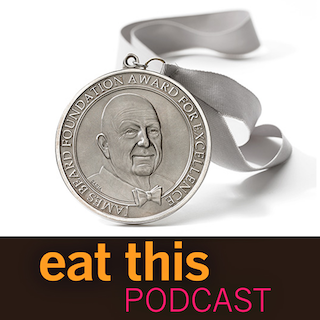Latest post
Quite by coincidence, I discovered yesterday that I wrote a post on the same day ten years ago expressing my frustration at being able only to tinker with the technology underlying my website, rather than actually understanding it. Why coincidence? Because I am once again in the throes of tinkering with my website while not fully understanding it. And something I wrote back then is a fine prompt to get on and write my submission to this month's IndieWeb Carnival.
The theme this month, proposed by Aaron Leonard, is Good Enough.
Back then I wrote:
I was struck by the not entirely novel idea that when something is good enough, you can't make much money by selling it. You can, however, make money by being better than someone else at doing something.
The problem then is the same as it is now: do the work to reach a better understanding, or pay someone to do it for me. The answer will be the same too, I suspect: do it myself, and accept that it will be good enough. Accept, too, that the satisfaction of doing it myself more than makes up for the lack of perfection.
Not to say that good enough is bad. There are all sorts of ways to think about this. Marginal returns is one I sometimes use. Will the time I spend improve the final product noticeably? In the case of my podcast, yes. An hour I spend cutting a minute of waffle is worth in excess of 80 person hours for the people who listen, a bumper ROI. If, however, I spend an hour tweaking the EQ until it is just so with my speakers and my ears, I suspect it will make absolutely no difference to the vast majority of listeners. So I make it sound OK, if I can, and that's good enough.
"Handsome is as handsome does" is more praise for good enough. I first came across it in a book about training lurchers, the point being that it didn't matter what your dog looked like, though mine was, of course, the prettiest hound imaginable; what mattered was whether she caught her prey. I like this one because again it contains the essence, that performance is more important than appearance.
And yet ... appearance matters too.
That, after all, is why I find myself tinkering with my website design, so that it looks good and works the way I want. That means finding a theme I like as a starting point and then tinkering to make it mine. Two difficulties arise. So many themes are ever so clever, with all sorts of options for doing this, that, and the other, that the underlying code is, for me, a mess of conditionals and inclusions and other fancy stuff. Will I break them with my tinkering? Only one way to find out. Can I make this thing do that? No. Does it really matter? Ok then, good enough.
So much for looks. Beneath the surface, though, is the real test. How will the website work for someone on a phone with limited downloads, or for someone with a slower connection? I will probably get to the point of releasing the new look in the next couple of days, and that'll be my first opportunity to measure performance in the real world. If that is poor, will I be able to track down and, more importantly, fix the causes? Are there people who do that for money?
Then there's the IndieWeb. The theme I am replacing is one of the few designed with IndieWeb principles in mind. The replacement has, as far as I can tell, never heard of the IndieWeb. It has a feed, of course, and will accept comments, but I want it to have an h-card and h-feed and from memory those will not be too difficult. I also want it to accept webmentions and to bridge to my socials, because I like the validation and because I want others to be able to do the things I like to do. That could be more difficult, not least because the theme's template for Comments is just such a mess of conditional and inclusions.
My priorities are straightforward: look and feel, followed by performance, followed by IndieWebitude. When I decide to go live with the site it will not be perfect on any of those, but it will be Good Enough.
This is a submission to the Indieweb Carnival for April: Good Enough, hosted by Aaron Leonard, to whom extra kudos for his image of the Pantheon.
Eat This Podcast

Using food as a vehicle to explore the byways of taste, economics and trade, culture, science, history, archaeology, geography and just about anything else.
Nominated for a James Beard Award in 2015 -- and again in 2016 -- and going from strength to strength.
Subscribe to the podcast in iTunes or by email and get a new episode every two weeks. And a newsletter to stave off the pangs between podcasts.
